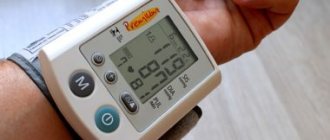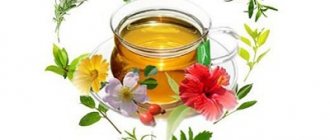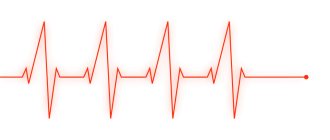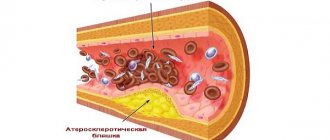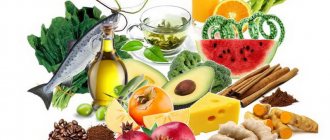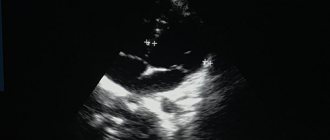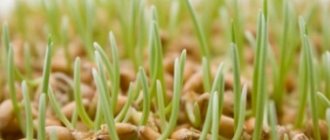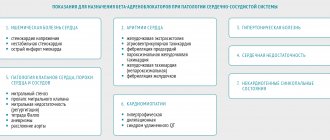Treatment of cardiac arrhythmia with folk remedies
Do not panic if your doctor has diagnosed you with atrial fibrillation, because there are treatment methods with folk remedies. It can be:
- viburnum decoction;
- hawthorn tincture;
- calendula infusion;
- decoction of valerian root;
- lemon balm tincture;
- grated celery;
- grated onion with apple.
- Treatment of cardiac arrhythmia in men with folk remedies
How to cure cardiac arrhythmia with folk remedies in a man? It's very simple: mix alcohol tinctures of valerian, hawthorn and motherwort. Infuse for 24 hours, take one spoon three times a day.
- Treatment of cardiac arrhythmia in women with folk remedies
If you are interested in folk remedies for atrial fibrillation in women, we recommend trying the following recipe: cut 0.5 kilograms of lemons, pour honey and add 20 apricot kernels. This drink is taken one tablespoon 2 times a day.
Buy viburnum (dried berries) on our website
How to strengthen your immune system?
Hardening
Hardening is, in essence, training the immune system. The main principle of hardening: moderation, gradualness and regularity.
Start small: walk more, ventilate the apartment more often, walk around the house barefoot, wipe yourself with a sponge or towel moistened with cool water, wash your face with cool water. Then you can move on to more serious procedures: dousing with cold water, contrast shower. Contrast showers, by the way, are very useful for training the cardiovascular system, improving skin condition, and preventing cellulite. Just remember to be careful and gradual! If you already have problems with the cardiovascular system, consult your cardiologist first.
The regularity of hardening procedures and the absence of long breaks between them are very important.
You can start hardening procedures only if you are completely healthy. Ideally, after consulting a doctor.
Nutrition
To strengthen the body, you need a balanced diet rich in vitamins and microelements. In order for you to receive all the necessary substances and microelements, your diet should be as varied as possible. Every day, all main food groups should be present in the diet: dairy, starchy, vegetables, fruits, sources of complex carbohydrates, protein and fats. Complex carbohydrates are found in cereals, pasta, potatoes, bran bread and unleavened whole grain breads. They take a long time to digest, unlike simple carbohydrates, which are found in sugar, cookies, cakes and other sweets. A person also needs indigestible carbohydrates - fiber or dietary fiber. They create a feeling of fullness, and, in addition, are useful for digestion. Such carbohydrates are found in oatmeal and wholemeal bread.
In addition, our body needs fats, since they help absorb vitamins A and E. If there is not enough fat in the body, the skin looks worse, the liver suffers, and sex hormones cease to be produced. Fats are saturated and unsaturated. The latter are better absorbed and, accordingly, they are more useful. They are good to get from fatty fish, avocados, almonds, and olive oil. Of course, the consumption of foods containing hidden unhealthy fats, such as mayonnaise, sausage, and cakes, should be limited.
Sources of protein are fish, meat, dairy products, eggs, legumes, nuts, mushrooms.
Eat as many vegetables and fruits as possible, preferably in thermally unprocessed form for greater preservation of vitamins.
Vitamins and probiotics
Numerous studies show that in Russia, and in other countries too, the vast majority of people suffer from hypovitaminosis - a lack of vitamins. As is known, vitamins are not formed in the human body, with the exception of vitamin D and vitamins synthesized by intestinal bacteria, and therefore must be constantly present in food. But even with the most rational diet (and let’s be honest, most of us have a far from perfectly balanced diet), the human diet today is “understaffed” with vitamins by 20–30%. The absorption of vitamins from “artificial” preparations is often higher than from regular food.
Accordingly, it is necessary to take multivitamin preparations regularly. During periods of illness, stress, depression, increased workload, pregnancy, smoking, alcohol abuse, and taking antibiotics, the need for vitamins increases. The duration of taking multivitamins is determined by your doctor and is usually 1–3 months; it is advisable to repeat the course 2–4 times a year. Vitamins are better absorbed if the daily dose is divided into several doses; it is better to prescribe the main dose in the first half of the day, since in the evening and at night the metabolism in the body slows down. Since a person has always received vitamins from food, it is better to take vitamin preparations with meals, so they are absorbed more fully.
In addition to vitamins, probiotics are important to strengthen the immune system. Probiotics are medications or biologically active food additives that contain live microorganisms that are representatives of the normal human microflora. They are designed to restore the disturbed balance of microorganisms inhabiting various human mucous membranes, and therefore are used for the treatment and prevention of immunodeficiency, dysbacteriosis and related diseases.
Probiotics stimulate the immune system at all levels, which has been proven in numerous clinical studies. Probiotics and vitamins should not be prescribed to yourself; it is better if a doctor does it.
Regime and physical activity
For the normal functioning of the entire body and a person’s well-being, a regimen is very important.
Try to get up and go to bed at the same time and get enough sleep. Rest more, walk in the fresh air. It is necessary to play sports and do exercises.
Regular physical activity has a beneficial effect on the immune system. During active physical activity, the overall tone of the body increases, mood improves, which contributes to greater activity and a surge of energy, the blood is enriched with oxygen, sleep and appetite improve. Physical activity helps relieve stress; the body produces endorphins (“happiness hormones”).
And be sure to walk in the fresh air. Weather permitting, try to spend at least an hour a day outside. Ideally, during daylight hours, because the sun is necessary not only for the production of vitamin D, but without sunlight the level of serotonin (another “happiness hormone”) in the blood, which is responsible for our good mood, decreases. In autumn and winter, the problem of lack of sunlight is especially relevant - we get up in the dark and leave work after sunset. Take advantage of every opportunity to catch daylight: walk during your lunch break, be sure to plan walks on the weekend.
Rejection of bad habits
Bad habits - smoking, alcohol, drug and drug abuse - greatly weaken the body's immune system, impair the functioning of many organs, destroy blood vessels, the brain, lungs, and increase the risk of developing diseases. In fact, if you constantly poison yourself with smoking, alcohol, etc., it is difficult to expect good condition from your body. Alcohol and nicotine suppress the immune system, as a result of which it ceases to perform its protective functions. By the way, many medications can weaken the immune system, so, firstly, you should not thoughtlessly take pills without a doctor’s prescription, and secondly, if you are taking medications, strengthen measures to strengthen the immune system.
Positive life attitude
People have a close relationship between the physical and emotional components. If life does not bring joy and pleasure to a person, then biological mechanisms of self-destruction are triggered. Be positive, enjoy every day - there is always a reason for this. The ability to positively perceive any reality is, without exaggeration, the key to health and longevity.
We hope that our tips will help you become healthier, and the upcoming autumn-winter season will bring you only joy, not illness!
Folk remedies that strengthen the heart
You can strengthen the cardiac muscle, heart and blood vessels with such folk remedies as:
- infusion of dill and parsley;
- hawthorn infusion;
- motherwort tincture;
- honey syrup with garlic;
- ground walnuts.
Advice! For the best effect, use decoctions of lemon balm, St. John's wort, and thyme.
Drugs to prevent heart disease
Healthy heart
It is impossible to treat the heart or prevent problems with it in isolation from the whole organism. Yes, the heart is the most important organ that works throughout life and ensures blood circulation in our body. But for its normal operation, it is necessary to provide it with optimal operating conditions. The heart itself is a muscular organ. This means that to contract muscle cells (cardiomyocytes), oxygen, nutrients, and removal of metabolic products are required. The coronary vessels surround the heart muscle and supply it with blood.
For coordinated work with other organs, it is connected with them through the nervous system and hormones circulating in the blood into one whole. We run and our heart beats faster, but at night, on the contrary, it slows down. Blood viscosity and its quantity also affect the functioning of the heart. The condition of the arteries and veins also determines whether it is easy or difficult to pump blood. Even physical activity can help in its work. Thus, the muscles of the foot and lower leg can rightfully be considered a “second heart”, since their contractions when walking help overcome the force of gravity and return blood upward through the vessels.
The work of the parts of the heart themselves must be coordinated with each other. Full contractions of the ventricles and atria should alternate with periods of relaxation when the muscle “rests”.
How the disease develops
Our body has a large margin of safety against damage and the ability to adapt even if some of the mechanisms “break down”. That is, the disease does not appear immediately. Atherosclerosis is considered one of the main causes of heart problems. It leads to damage to the walls of blood vessels and a gradual narrowing of its lumen. These processes continue for many years and can proceed completely unnoticed. This means that when any symptom of problems with the heart or blood vessels appeared, the body stopped coping with them. It is impossible to predict in advance where an atherosclerotic plaque will grow in a coronary vessel, on the wall of the heart valve or in the arteries of the brain. It can also break away from the wall of the vessel and clog any narrow artery with the blood flow. In this case, could there be a “magic pill” that, by taking it, can “clean” blood vessels or cure the heart? Unfortunately no. After all, even after coronary artery bypass surgery there are no guarantees that this will not happen again.
Risk factors
It turned out that the presence or absence of risk factors plays a major role in the prevention of problems with the heart and blood vessels. The same ones that accumulate their potential for many years, and then “suddenly” are realized in the form of heart attacks and strokes.
Risk factors:
- Arterial hypertension
- Hypercholesterolemia
- Smoking
- Insufficient consumption of vegetables and fruits
- Excess body weight
- Excessive alcohol consumption
- Physical inactivity
It is these factors that act for many years that lead to irreversible changes. Only by eliminating them and replacing them with the opposite ones can effective prevention of heart disease be carried out. If we talk about hereditary predisposition, then they will play even more importance.
For those people who already have heart problems, secondary prevention is necessary to avoid a recurrence of the acute situation. It also involves eliminating risk factors. But it also adds treatment and control of existing diseases.
Prevention
In addition to lifestyle changes, nutrition, and physical activity, various medications can be used to prevent heart disease. The purpose of their use is to reduce risk factors if this could not be done without drugs. In practical medicine, a doctor cannot force a patient to quit smoking, eat less and move more; the person must do this himself. You can start taking medications only as prescribed by a doctor, after undergoing tests and studies, since each drug has contraindications, and their combinations can increase side effects. Compliance with the treatment regimen will help correct current problems that directly affect the risk of heart attacks and strokes:
- Arterial hypertension
- Arrhythmias
- Cardiac ischemia
- Atherosclerosis
- "High" cholesterol
- Diabetes
- Obesity
Drugs
Statins . Taking statins helps fight hyperlipidemia and prevents the development of atherosclerosis. Helps stabilize the surface of cholesterol plaques, which prevents the formation of blood clots. Taking these medications is necessary for life with periodic monitoring of biochemical blood tests for liver function. Therefore, before taking them, you should make every effort to correct your lipid profile first through diet. Some of the modern and studied statins are Crestor and Mertenil.
Antihypertensive drugs
- Angiotensin converting enzyme inhibitors Diroton, Prestarium A, Hartil
- Angiotensin receptor blockers Valsacor, Aprovel
- Beta blockers Concor, Betalok
- Calcium antagonists Verapamil, Normodipine
- Diuretics Hypothiazide, Arifon-retard
There are many groups of drugs with this effect. Their selection is made only by a specialist, since they may have additional effects on slowing heart rate when interacting with other drugs. Also, a combination of 2 several groups may be more effective. The bottom line is that even a decrease in pressure by only 5-10 mmHg. already reduces the risk of disaster.
Antiplatelet agents . Help prevent the formation of blood clots and improve blood flow. Must be prescribed by a doctor, as they can lead to bleeding. Aspirin is most often prescribed. Curantil, Clopidogrel, Pentoxifylline can also be used.
Antianginal drugs . Helps cope with attacks of ischemic pain during angina attacks. The most famous drug is Nitroglycerin
Metabolic drugs. Not all drugs in this group have a broad evidence base, but are also used in practice. They are designed to improve metabolic processes in cells and protect them from ischemia. These include Preductal (trimetazidine), Mildronate, ATP, cocarboxylase, Neoton.
It is also necessary to effectively treat diabetes mellitus, as it provokes the progression of atherosclerosis.
Prevention can only be effective in combination, and medications only provide support where our efforts and the body’s capabilities are exhausted.
Literature:
PREVENTION OF CHRONIC NON-INFECTIOUS DISEASES. PRIMARY AND SECONDARY PREVENTION OF CARDIOVASCULAR DISEASES. Recommendations 2013
Clinical recommendations. Arterial hypertension in adults. Russian Society of Cardiology 2019
Folk remedies for heart pain
Already tired of discomfort in the chest area? Folk remedies will help treat heart pain:
- viburnum berries;
- decoction of oats and flaxseed;
- hawthorn and sweet clover decoction;
- bearberry, milk thistle;
- dandelion root.
Also effective for heart pain: asparagus, valerian, plantain, calamus root, anise, St. John's wort, calendula.
You can find these and other herbal remedies that help improve our muscle life in the FitoContinent online store. Rich resources of natural medicine are at your disposal at affordable prices!
Buy calendula (flowers) on our website
Review
Signs of immune failure
- frequent acute respiratory infections
- frequent exacerbations of chronic infectious diseases (tonsillitis, sinusitis, bronchitis, pyelonephritis, adnexitis, etc.)
- frequent recurrences of herpetic rashes
- pustular skin lesions
- joint and muscle pain
- prolonged increase in temperature or lack of temperature response in acute infectious diseases
- swollen lymph nodes
- poor wound healing
- malignant neoplasms
- weakness
- chronic fatigue syndrome
The immune system is formed in a person in the womb, and a lot depends on heredity. But lifestyle also plays a very significant role in the functioning of the immune system. And if we can’t do anything about heredity, then we can strengthen the immune system by following certain rules!
